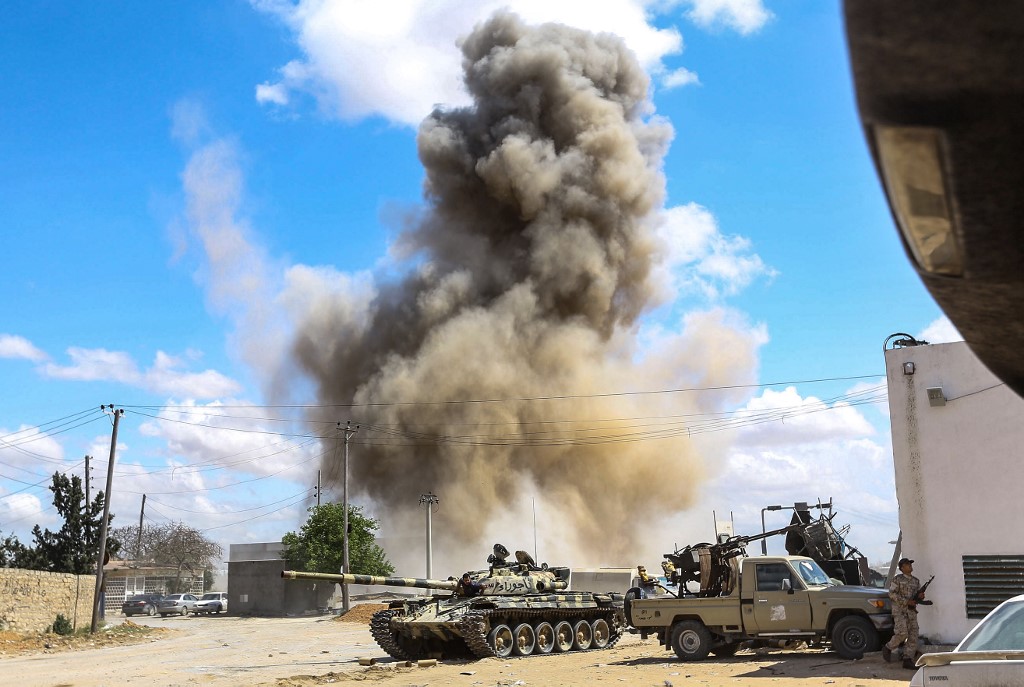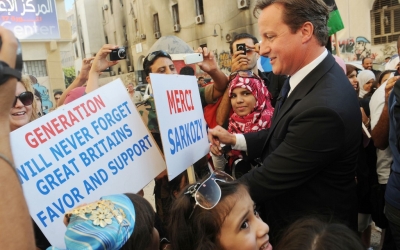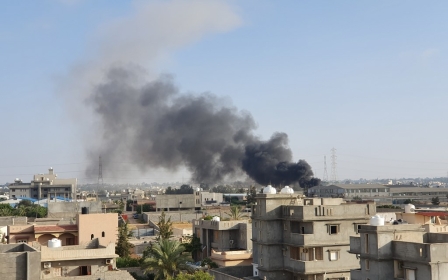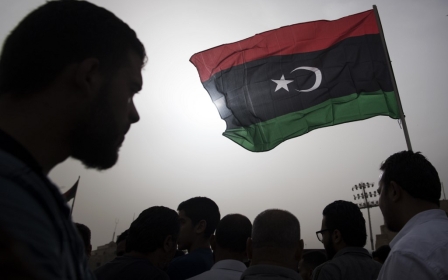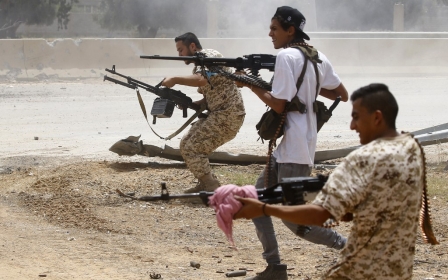Haftar's collapse is the moment to look for a negotiated end to war
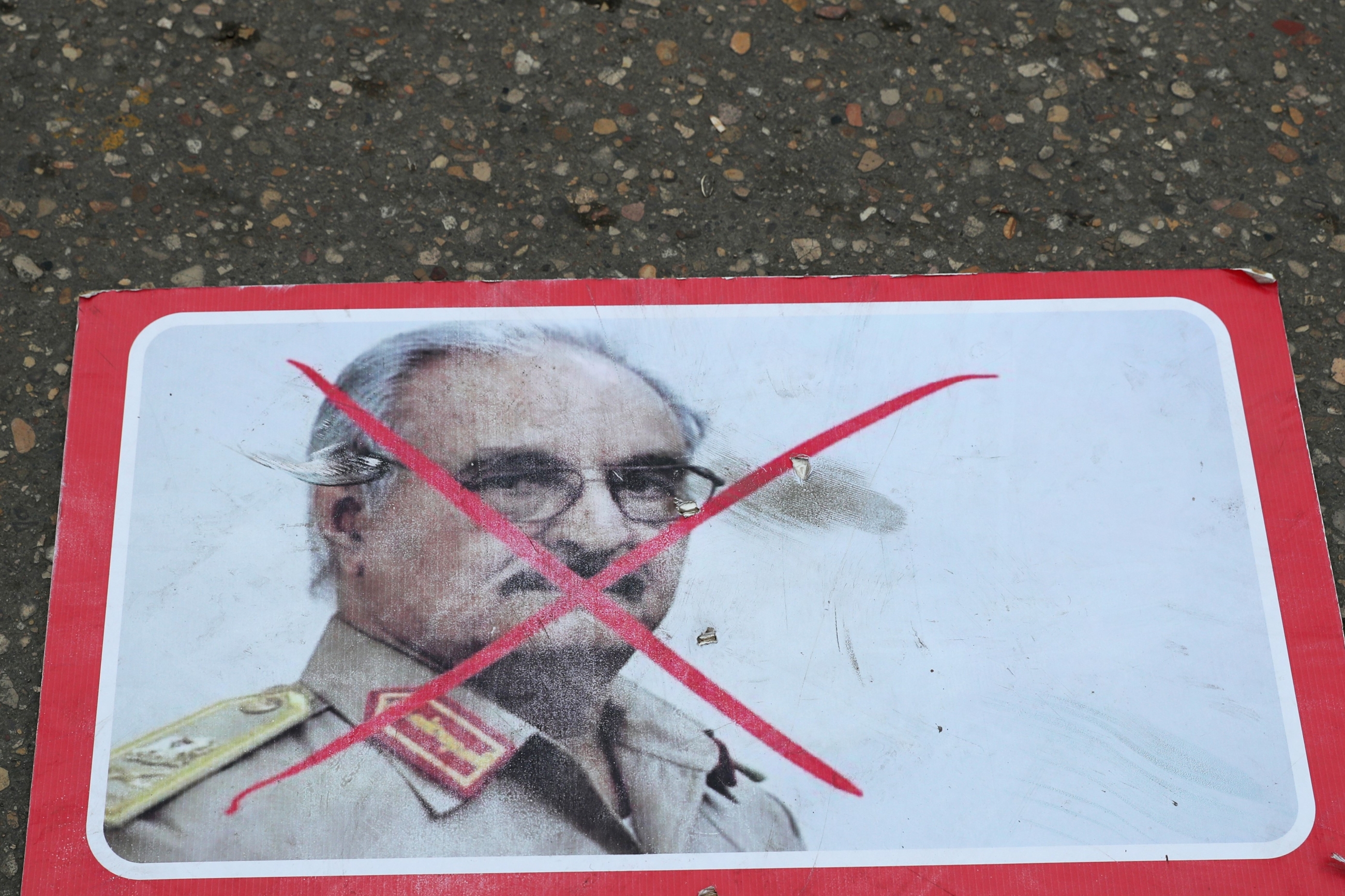
Libya’s civil war has long been fought on two fronts: one in the corridors of the UN and foreign capitals, and the other throughout the towns, cities and desert expanses of Libya itself.
Increasingly, the latter front is dominating. While the war, reinvigorated after Field Marshal Khalifa Haftar’s move on Tripoli in April, is commonly referred to as a stalemate, Haftar’s once irrepressibly rising star now appears to be crashing.
His international allies are doing all they can to prop up his house of cards, but this desperate doubling down is unlikely to succeed. Instead, it is Haftar’s opponents who increasingly believe they have the wind in their sails.
New power dynamics
As Haftar’s enterprise collapses, it is increasingly incumbent that those opposing him on the ground - and the international actors who don’t believe he can be a stabilising influence - proactively articulate an alternative strategy to lock in a ceasefire and a subsequent political process, if they want to avoid further cycles of warfare.
New MEE newsletter: Jerusalem Dispatch
Sign up to get the latest insights and analysis on Israel-Palestine, alongside Turkey Unpacked and other MEE newsletters
While some fighting under the banner of the Government of National Accord want to continue the war eastwards, this would be a messy and unattainable goal. The priority must be on a political process that reflects the new power dynamics on the ground, rather than the illusions of Haftar, his backers, or the increasingly isolated Prime Minister Fayez al-Sarraj.
It seems that those who had once opportunistically hitched themselves to Haftar's wagon are sensing his time may be up
Despite initial advances, Haftar’s assault has been falling flat. The Libyan National Army (LNA)’s loss in June of Gharyan, which served as Haftar’s forward operating base, was a severe blow from which they never recovered.
Every offensive since has been beaten back within a few hours. His last remaining bastion in western Libya, the town of Tarhouna, is now slowly being throttled as the anti-Haftar alliance closes in from all sides.
The recent deaths of two of the men leading Tarhouna’s militia forces is a further signifier of the direction this war is going.
Escalating bombardment
As Haftar loses on the ground, his backers have escalated the rate of air strikes almost exponentially, in a bid to sustain his enterprise and retain an impression of strength.
A recent bombardment on Sirte might have been the latest attempt by the Haftar camp to regain a position of strength, by opening a new and more manageable front - but it could have long-lasting, destabilising consequences by further dividing Libya and fomenting a new conflict.
With an operation that’s increasingly reliant on Sudanese mercenaries, foreign air strikes, foreign-delivered heavy weaponry to maintain a battlefield presence, and Russian deliveries of a parallel currency to maintain solvency, Haftar’s operation - and Libya’s wider civil war - is not just a domestic affair.
The LNA’s newly apparent fragility and attempts to overcompensate through devastation from the skies are having reverberations across the country. In the long-troubled south, the LNA’s exacerbation of ethnic divides and overhaul of existing security structures created the conditions for renewed local violence, which sparked around Murzuq after an LNA drone strike.
In the east, the same dynamics are pushing Benghazi, once the symbol of Haftar’s strength, towards instability, marked by two car bombs targeting LNA officers and the UN mission over the summer, and the kidnapping by a Haftar-aligned extremist group of an MP who had called for an end to the war.
It seems that those who had once opportunistically hitched themselves to Haftar’s wagon are sensing his time may be up, and are seeking to carve out their own space, which will outlast the LNA. Dubbed as the strongman able to deliver stability, Haftar is in fact slowly imploding from within.
If his decline is not managed, it could leave Libya poorer, more deeply fractured, and more conflict-ridden than ever before.
Worrying signs
Conversely, anti-Haftar forces - helped by their Turkish allies, who have provided drones, armoured vehicles and logistical assistance - are growing more organised as the war continues, and are laying down infrastructure to sustain their offensive.
The normalisation of a state of war for many of western Libya’s youth, and the zealousness of some factions to take the war east to Haftar after what they see as an inevitable victory in Tarhouna, are further worrying signs that the civil war launched by Haftar may turn into a forever war that spreads nationwide - including beyond the control of the West’s increasingly isolated political leadership - and outlasts the two factions that first fought.
Short of a rapid political advance, this outcome may be inevitable, but there is an opening emerging. While UN Special Representative Ghassan Salame has put forward a three-part plan calling for a truce, trust-building exercises and an international conference to push a bottom-up political process, this plan is now stuck.
The truce did not hold, the trust-building exercise collapsed after fighters in Tarhouna allegedly slaughtered rather than exchanged prisoners, and the international conference that the UN hoped could be held before the General Assembly meeting could not be organised, given the refusal of opposing regional actors to meet.
Under growing international pressure, including from within Africa and from the likes of German Chancellor Angela Merkel, it has now been announced that Berlin will host Salame’s international conference in late October or early November. But the devil will be in the details, and the economic and security elements of a truce reportedly being discussed point towards a possible settlement that protects Haftar and allows him to fail upwards.
The path forward
As propitious as such an agreement could be to the weakened Haftar camp, the reality is that such a diplomatic push would struggle to deliver results. Sarraj knows that a settlement along such lines with Haftar would be political suicide; the anti-Haftar alliance would ignore it even if it did occur, and their Turkish backers would see no reason to surrender a winning position in such fashion.
Indeed, it actually risks further inflaming tensions and burning international credibility, rather than leading towards stabilisation, causing the anti-Haftar alliance to believe that the international community is working to protect Haftar’s - rather than Libya’s - interests.
There would also be a significant opportunity cost, by spurning a chance to replace war with politics and a moment of concerted political will to solve one of the Middle East’s often-neglected conflicts.
If the initiative is once again surrendered to partisan states and this opportunity is not seized, Libya will continue in a death spiral
Unless this new approach is based on a strategy that reflects Libya’s decentralised realities, and engages the forces active on the ground and individual constituencies rather than seeking to protect and prop up two increasingly disconnected leaderships, then it is likely to fail.
The UN General Assembly meetings and the German conference that follows will be a prime opportunity to build up a critical mass of non-interfering, yet concerned states, which can provide the needed cover for Salame to articulate and implement such a plan.
Time is running short. If the initiative is once again surrendered to partisan states and this opportunity is not seized, Libya will continue in a death spiral that may well become unsalvageable, to the detriment of the entire Mediterranean region.
The views expressed in this article belong to the author and do not necessarily reflect the editorial policy of Middle East Eye.
Middle East Eye delivers independent and unrivalled coverage and analysis of the Middle East, North Africa and beyond. To learn more about republishing this content and the associated fees, please fill out this form. More about MEE can be found here.



